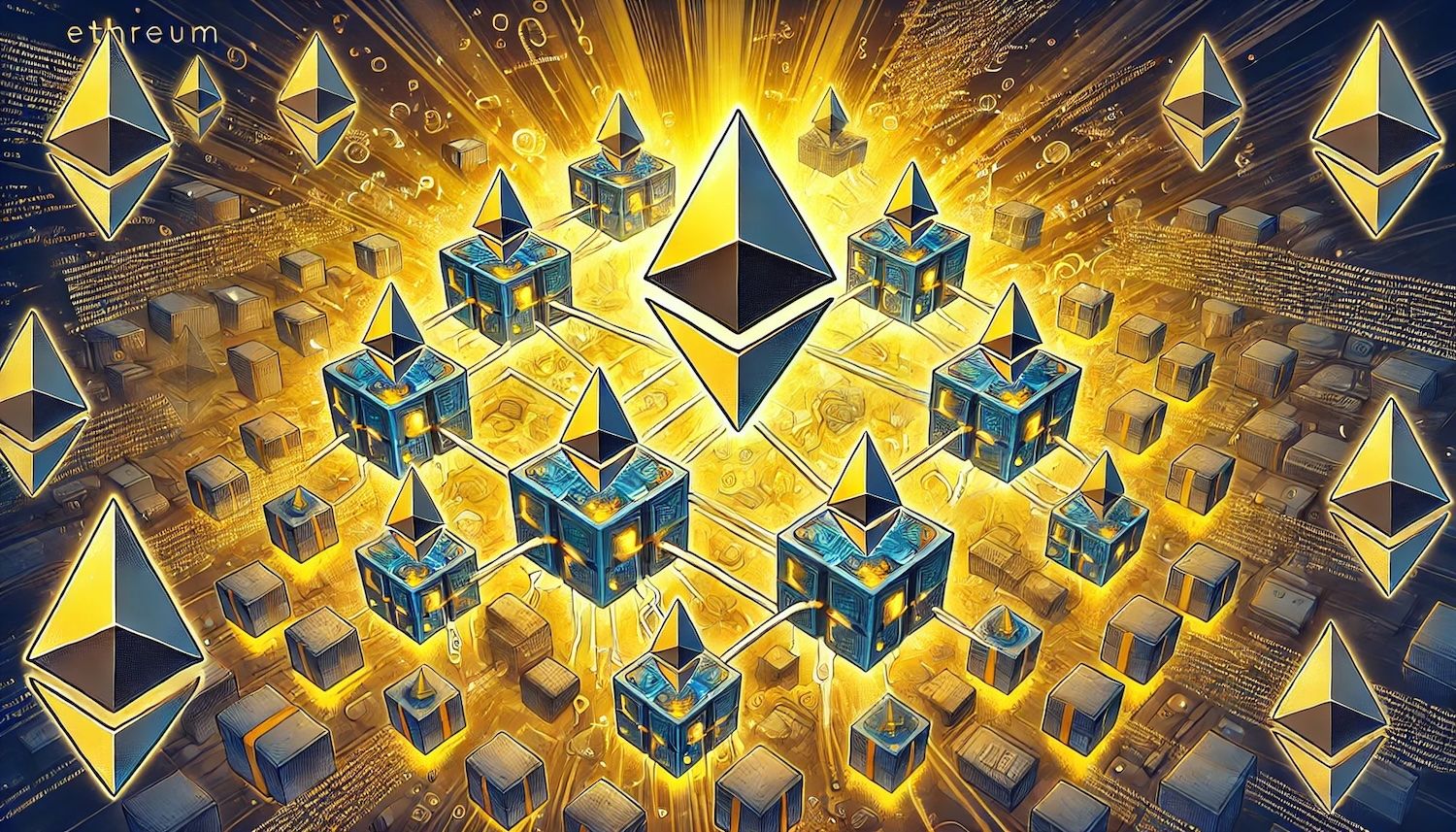When you go DeFi, you're not only in charge of your own finances, but you're also fully responsible for protecting your personal information. It’s time we looked into two brain children of Vitalik Buterin - Externally Owned Accounts and Smart Accounts.
Without the need for conventional middlemen like banks, DeFi platforms have introduced a multitude of services, including lending, borrowing, and complex derivatives. This new way of thinking is driven by blockchain technology, specifically Ethereum and other smart contract platforms.
With each passing year of DeFi's development, the foundational infrastructure supporting user interactions with these platforms is of paramount importance. We need more robust account management systems because of security vulnerabilities, usability challenges, and scalability issues. User accounts within the blockchain ecosystem must be secure and efficient, as the recent uptick in hacks and exploits has shown.
At the heart of this discussion lies the comparison between Externally Owned Accounts (EOAs) and Smart Accounts.
Until recently, EOAs were the only way for users to engage with blockchain networks. From the beginning of Ethereum, they have served as the foundation for blockchain interactions due to their simplicity and straightforwardness.
But the limits of EOAs are becoming more obvious as user demands change.
Now we have Smart Accounts, a more modern and adaptable form of account that uses smart contracts to provide more features.
Smart Accounts are designed to fix the problems with EOAs. They have features like programmable transaction logic, social recovery mechanisms, and multi-signature approvals. Many people think these accounts are a big deal because they will make blockchain technology easier and safer for regular people to use.
If you're working in the DeFi industry, you absolutely must know the distinction between EOAs and Smart Accounts.
Understanding the purpose of these account types can help users and developers alike make more informed decisions and interact with blockchain networks safely, whether you're creating a DeFi platform or just trying to make things easier for yourself.
We will go over the definitions, functions, pros, and cons of EOAs and Smart Accounts right now, as well as why it is important to distinguish between the two in the dynamic DeFi landscape.

Understanding Externally Owned Accounts (EOAs)
An EOA, or Externally Owned Account, is a cornerstone of the Ethereum network.
Vitalik Buterin and the Ethereum Foundation introduced EOAs, the network's most fundamental account type, with the 2015 launch of Ethereum.
Their primary goal in development was to offer a user-friendly interface for managing one's Ethereum account and interacting with the Ethereum network. You can send transactions, hold Ether (ETH), and interact with smart contracts using these, which are controlled by private keys that users have.
Every EOA has its own distinct Ethereum address, which is generated from the public key of the user. The privacy of an EOA's private key is crucial to its security. With this private key, EOA transactions are signed and broadcasted to the network.
An EOA consists of:
- Nonce: A counter used to ensure each transaction can only be processed once.
- Balance: The amount of Ether the account holds.
- Private Key: A 256-bit number known only to the account owner.
- Public Key: Derived from the private key, used to generate the Ethereum address.
Where Are EOAs Used?
You can find EOAs on every Ethereum-compatible blockchain, including Binance Smart Chain and Polygon. They are used for:
- Holding and Transferring Ether: Users can send and receive ETH.
- Interacting with Smart Contracts: EOAs can call smart contract functions.
- Deploying Smart Contracts: Only EOAs can deploy new smart contracts to the network.
Pros of EOAs
- Simplicity: EOAs are straightforward, making them easy for users to understand and use.
- Lower Gas Costs: Transactions from EOAs typically consume less gas compared to those involving smart contracts.
- Widespread Support: All wallets and dApps support EOAs, ensuring broad compatibility.
- Direct Control: Users have full control over their private keys and funds.
Cons of EOAs
- Security Risks: If a private key is lost or stolen, the funds in the EOA are irretrievable.
- Lack of Flexibility: EOAs cannot have complex logic like multi-signature or recovery mechanisms.
- No Account Abstraction: EOAs require users to manage gas fees in ETH, complicating user experience.
- Single Point of Failure: The private key represents a single point of failure, increasing risk.
Technical Details
- Transaction Signing: Uses the Elliptic Curve Digital Signature Algorithm (ECDSA) for securing transactions.
- Gas Payment: EOAs must hold ETH to pay for gas fees, even when interacting with tokens or other assets.
- Nonces: Prevent replay attacks by ensuring that each transaction is unique and processed only once.

Exploring Smart Accounts
Smart Accounts, often referred to as Smart Contract Wallets or Account Abstraction Wallets, are accounts controlled by smart contract code rather than a private key alone.
With their introduction, more sophisticated logic could control account behavior, thereby overcoming the shortcomings of EOAs. With a Smart Account, you can take advantage of features like social recovery, customizable transaction validation, and multi-signature approvals.
Smart Accounts have developed through time thanks to the efforts of many Ethereum developers.
Vitalik Buterin and others proposed EIP-4337 in 2021 to bring account abstraction to Ethereum without a hard fork, and the idea gained significant traction after that.
Deploying smart contracts on the blockchain is how Smart Accounts are implemented. Their code allows them to incorporate multiple authorization mechanisms instead of being tied to a single private key.
A user can use the Smart Account's contract logic to check if a transaction is authorized when they want to do it, using predefined rules.
Components of a Smart Account:
- Contract Code: Defines the logic and rules governing the account.
- Storage Variables: Keep track of account state, such as authorized signers.
- Functions: Methods that can be called to perform actions like transferring funds or updating permissions.
Where Are Smart Accounts Used?
Smart Accounts are increasingly used in platforms that prioritize security and flexibility, including:
- DeFi Protocols: For complex transaction flows and fund management.
- DAOs: Decentralized Autonomous Organizations use them for governance and treasury management.
- Multi-Signature Wallets: Require multiple approvals for transactions, enhancing security.
- Account Abstraction Initiatives: Efforts like Ethereum's EIP-4337 aim to standardize Smart Accounts.
Pros of Smart Accounts
- Enhanced Security: Features like multi-signature and rate limiting reduce risks.
- Recoverability: Social recovery mechanisms allow users to regain access if keys are lost.
- Customizable Logic: Users can define specific rules for transaction approvals.
- Improved User Experience: Can abstract gas fees, allowing payment in tokens other than ETH.
Cons of Smart Accounts
- Higher Gas Costs: Transactions involving smart contracts consume more gas.
- Complexity: More complicated to set up and understand for average users.
- Dependency on Contract Code: Bugs in the smart contract can lead to vulnerabilities.
- Less Widespread Support: Not all wallets and dApps fully support Smart Accounts.
Technical Details
- Account Abstraction (EIP-4337): Proposes moving validation logic from the protocol level to the smart contract level.
- Meta-Transactions: Allow transactions to be paid by third parties, enhancing usability.
- Gas Optimization: Techniques are needed to minimize gas costs due to the complexity of smart contracts.
EOA vs. Smart Accounts: A Direct Comparison
Area of Usage and Popularity
- EOAs: Remain the most common type of account due to their simplicity and default support across platforms.
- Smart Accounts: Gaining popularity in niches requiring enhanced security and functionality, such as DeFi protocols and DAOs.
Security
- EOAs: Security hinges solely on the private key. A compromised key means compromised funds.
- Smart Accounts: Offer advanced security features like multi-signature and social recovery, reducing single points of failure.
Usability
- EOAs: Easier for new users to understand but require manual gas management.
- Smart Accounts: Can provide a smoother user experience by abstracting complexities like gas fees, but initial setup is more complex.
Transaction Costs
- EOAs: Lower gas costs due to simpler transaction logic.
- Smart Accounts: Higher gas costs because of the additional computation required by smart contracts.
Flexibility
- EOAs: Limited to basic transactions and cannot enforce complex rules.
- Smart Accounts: Highly flexible, allowing custom rules and programmable logic.
When is an EOA Better?
- Simplicity: For users who prefer straightforward account management.
- Cost Efficiency: When minimizing gas fees is a priority.
- Broad Compatibility: When interacting with platforms that may not support Smart Accounts.
When is a Smart Account Better?
- Enhanced Security Needs: For large holdings or institutional funds requiring multi-layer security.
- Custom Functionality: When specific transaction logic or permissions are needed.
- User Experience: For abstracting complexities and providing a more intuitive interface.
Direct Competition
Smart Accounts and EOAs both manage user interactions with the blockchain, but they differ in how they prioritize security, functionality, and user experience. With the increasing complexity of DeFi and blockchain applications, Smart Accounts may become the preferred choice for advanced account features.
Technical Nuances
- EOAs Require ETH for Gas: Users must maintain an ETH balance for transactions.
- Smart Accounts Can Use Gas Relayers: Allow transactions to be sponsored or paid with different tokens.
Adoption Challenges
- EOAs: No significant barriers to adoption due to their default status.
- Smart Accounts: Adoption is hindered by complexity and lack of standardization, though initiatives like EIP-4337 aim to address this.
Conclusion
By providing new resources for safe and efficient transactions, blockchain technology is changing the face of the financial sector.
Historically, users have been able to access blockchain networks like Ethereum through Externally Owned Accounts (EOAs), which provide a straightforward and easy way to interact with the system.
But the limits of EOAs have become more obvious as ecosystem complexity and stakes have increased. Smart Accounts were developed in response to security concerns, usability issues, and the limited flexibility of EOAs. Better security, more adaptable logic, and an easier user experience are all benefits of these accounts' use of smart contracts, which make them an attractive alternative.
Which is better, EOAs or Smart Accounts? It all comes down to the user's priorities and needs. Still, EOAs are a good choice for people who want things to be simple and have low transaction costs.
Smart Accounts, on the other hand, might be the best option for users and organizations who value efficiency, adaptability, and top-notch security.
With the ongoing efforts to standardize account abstraction through proposals like EIP-4337, Smart Accounts are expected to see increased adoption as the DeFi space continues to innovate. These updates are an attempt to unite the two kinds of accounts. And maybe even provide the streamlined experience of EOAs along with the advanced capabilities of Smart Accounts.
The strategic decision that can affect security, cost, and overall user experience is to understand the differences between EOAs and Smart Accounts; it's not just a technical consideration. It will be crucial for organizations and individuals to make educated decisions regarding account management as blockchain technology is increasingly incorporated into our everyday lives.

